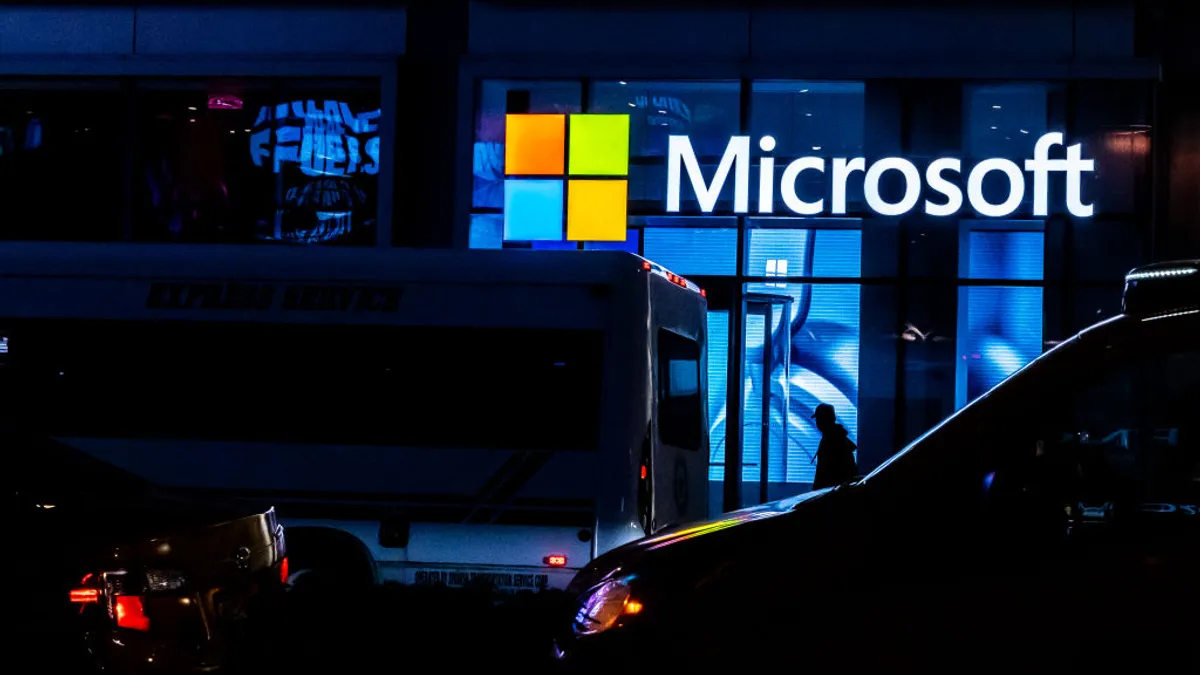This is the first in a series looking into the technology challenges the airline industry is facing and how it is looking to innovate. The previous installment looked at the systemic issues airline IT departments have faced.
Airlines have gone through a rough patch in recent years with high-profile cases of system-wide computer outages tossing millions of passengers into travel limbo. Outages became a chronic issue thanks to a blend of old and new IT systems backed by paltry staff and financial resources.
But that is changing. Relatively low fuel prices and improving profits have helped airlines loosen IT purse strings, according to Henry Harteveldt, airline industry analyst with Atmosphere Research Group.
Airlines are starting to evaluate new technologies such as machine learning, blockchain and advanced cybersecurity tools, and a crop of plucky startups want nothing more than to help the industry put those new tools to work.
Transactional relationships
To generate more revenue during the Great Recession, airlines began to unbundle services such as bag check from ticket prices.
But this à la carte approach generated IT headaches for airlines that suddenly had to manage far more discrete products and transactions than before, according to Harteveldt. Not only did the increased volume of individual transactions mean there was more to manage, but there was also more to pay for through credit card fees and charge-backs.
Consumers now expect to be able to purchase tickets or services through a growing list of formats such as virtual currencies. Airlines also want to use as many touchpoints as possible, including social networks, to reach out to and transact with customers. Legacy payment systems airlines relied on for many years have struggled to keep up with these demands.
Irish firm Datalex manages a digital omnichannel pricing, personalization and payments platform. Its chief marketing officer, Ornagh Hoban, said it allows airlines to bring all aspects of customer management into a single system as well as integrate B2B transactions — those made on behalf of customers through travel services firms or car rental companies — and C2B transactions into the same platform.
When a disruption occurs, she said, "our platform allows the airline to identify and engage with the customer, enable immediate rebooking of the flight, and issue a digital voucher or provide accommodation."
JetBlue uses the Datalex platform for new product offerings, enabling past customers to view offers price-based on their preferences. Air China also uses the platform to support personalized offers through integration with WeChat and Chinese travel service Ctrip.
Having a robust payment network is no small feat. Airlines are having to support more and more types of payments, many of which are completely mobile-based, Harteveldt said. KLM airlines now supports more than 200 types of payment.
Support and standards
Datalex is one of nearly 100 IT vendors, airlines and travel agents or aggregators that use New Distribution Capability (NDC), an XML-based data transmission standard for communications between airlines and other parties involved in transactions.
The two-year-old standard was developed and is supported by the International Air Transport Association (IATA) in order to streamline the process of retailing air travel products and services across sales channels.
IATA is also exploring the use of distributed ledger technology (DLT) — such as blockchain — for a range of applications, including payments and support of maintenance and repair operations for airlines, said Juan Ivan Martin, IATA’s Head of Innovation, Financial and Distribution Services.
On the vendor side, IBM is among other strong proponents pushing for DLT in the aviation industry, pointing to its utility in establishing a secure, transparent chain of custody and repair records for parts. But the technology is still in its very early days for the aviation industry.
The high-risk game of musical chairs
There are also ways in which IT could help airlines improve consumer sentiment while also boosting revenues for a huge win-win. In April, when United passenger David Dao refused to surrender his seat on an oversold flight and was dragged off the plane, it was obviously not a banner day for the airline. But it made the phones start ringing at Avisell, a San Francisco startup that has developed a platform designed to help airlines both avoid such disasters and grow their margins, according to CEO Eric Boromisa.
Oversold flights are not accidents. To hedge against lost revenue from refundable tickets purchased by no-shows, airlines double-book some seats. Airlines know which flights are more likely than others to be full based on the time of day or special events. For example, early morning flights have some attrition due to passengers sleeping through their alarms, whereas the last flight of the day on a given route is generally full.
Airlines already use proprietary algorithms to determine where and when to overbook seats, but Avisell tweaks that model by engaging consumers proactively, Boromisa said. It presents cash rebooking offers to flexible passengers on full or oversold flights — not when they're sitting in the terminal or on the plane, but before they get to the airport.
Avisell uses predictive analytics to determine which customers an airline should reach out to whenever a flight appears likely to be oversold. To identify those customers, the company analyzes a number of variables related to the ticketed passengers, such as when and how they purchased their tickets, what they paid and whether they have long lay-overs, Boromisa said.
By relying on machine learning, its software gets better over time at predicting which customers are most willing to make a deal, he said.
Despite the debacle over Dao being removed from his seat and a couple spates of delayed flights due to computer problems this summer, United saw a 6.4% year-over-year increase in second-quarter revenue this year. The airline is using machine learning and a heavier reliance on cloud computing to better manage overbookings as well as serve up more personalized offers to individuals and groups of customers.
Of course, selections are made with the airline's margins in mind. Customers who purchased tickets at low fares are offered refunds first, and the ultimate goal is for the airline to instead sell that seat to a higher-paying customer.
But Avisell, which is running pilot projects with two mid-size European carriers, also wants to help airlines get ahead of a situation where demand is going to well exceed supply. "Airlines release tickets one year in advance, so if demand spikes six months into that year due to, say, a major event," airlines want to generate as much revenue as possible around that event, Boromisa explained.
Inclusion is something Avisell and many other software startups in the airline industry are pursuing as they try to penetrate a walled garden formed by a handful of technology companies such as IT services providers Sabre, Amadeus, and Travelport, which have long-standing contracts with carriers.
Nearly every aspect of the airline industry — from how carriers interact with customers to who they partner with to support their IT architecture — is changing, hopefully for the better.




















